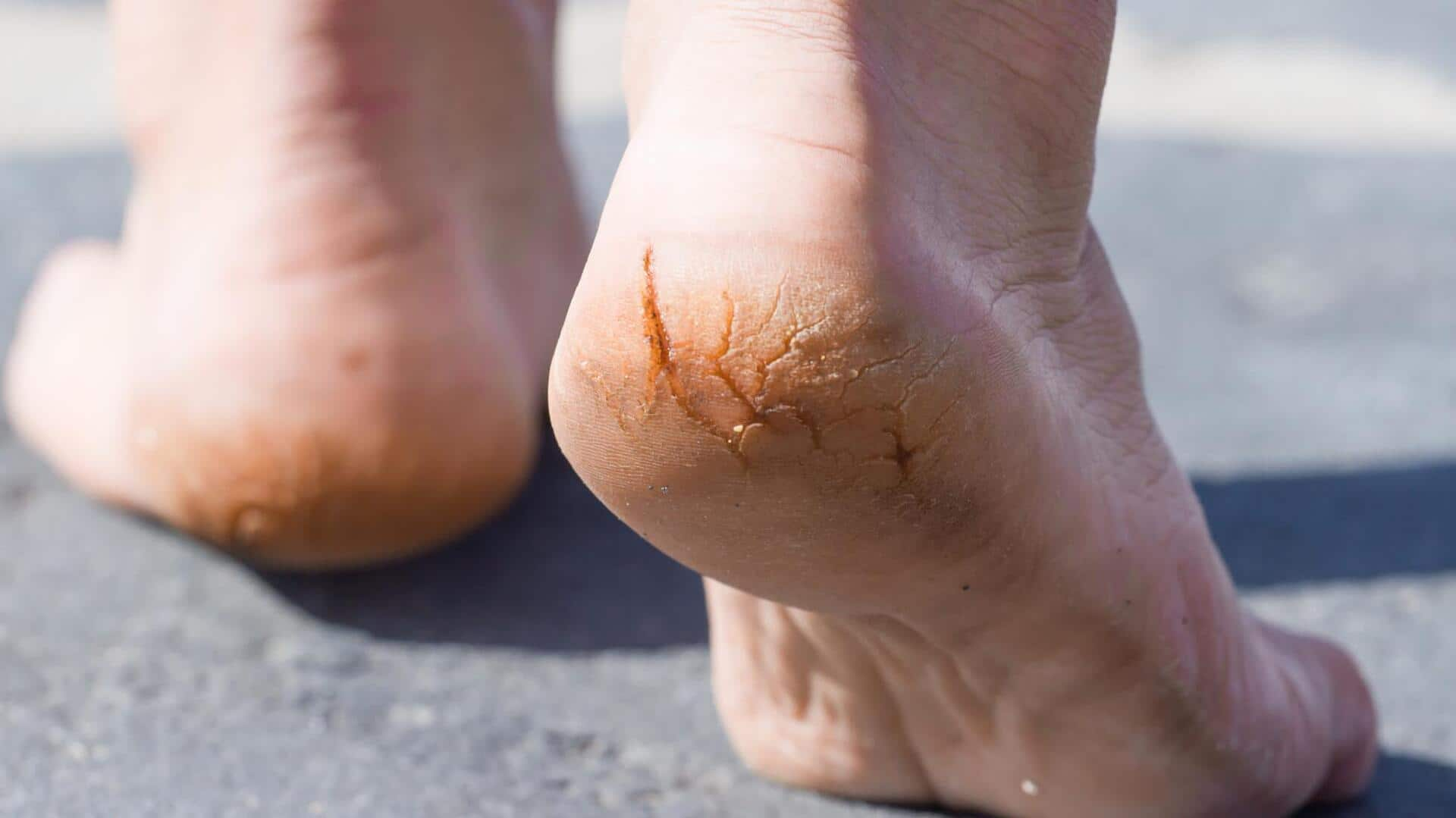'Cracking' the truth your heels: Signs to observe
What's the story
Cracked heels are a common issue, but that also means there are a ton of myths out there about what causes them.
One of the most common ones? That they're a sign you're not getting enough vitamins.
This article aims to bust some myths, provide some clarity, and help you understand your body a little better.
Myth 1
Not just a vitamin shortage
The notion that cracked heels are only a sign of vitamin deficiencies is a bit of a myth.
Yes, deficiencies in vitamins A, C, and E can contribute to skin issues, but cracked heels are often caused by external factors like dry skin, standing for long periods on hard surfaces, and wearing open-back shoes.
Drinking plenty of water and taking good care of your feet are the keys to prevention.
Myth 2
More than skin deep
Many believe cracked heels are a sign of severe health problems such as thyroid disorders or diabetes.
While these conditions can cause dry skin and exacerbate cracked heels, it's not accurate to say everyone with cracked heels has these diseases.
It's important to look for other symptoms and get a diagnosis from a healthcare provider instead of jumping to conclusions based on heel condition.
Myth 3
Hydration over vitamins
Many think that upping your vitamins is the magic cure for cracked heels. But, the real secret might be simpler than you think: staying hydrated.
Drinking plenty of water keeps your skin elastic and can prevent cracks from getting worse or even forming in the first place.
And of course, regular moisturizing with creams specially formulated for foot care can also offer comfort and repair.
Myth 4
A balanced approach is key
There's a myth that certain diets or supplements can magically cure cracked heels overnight.
In reality, while a balanced diet (think fruits, veggies, healthy fats, and proteins) supports skin health, it doesn't directly fix foot problems.
Foot hygiene, including gentle exfoliation and appropriate footwear, is crucial for preventing and treating cracked heels.
Bottom line: Nutrition is important for skin health, but comprehensive care is the secret to soft, crack-free feet.
